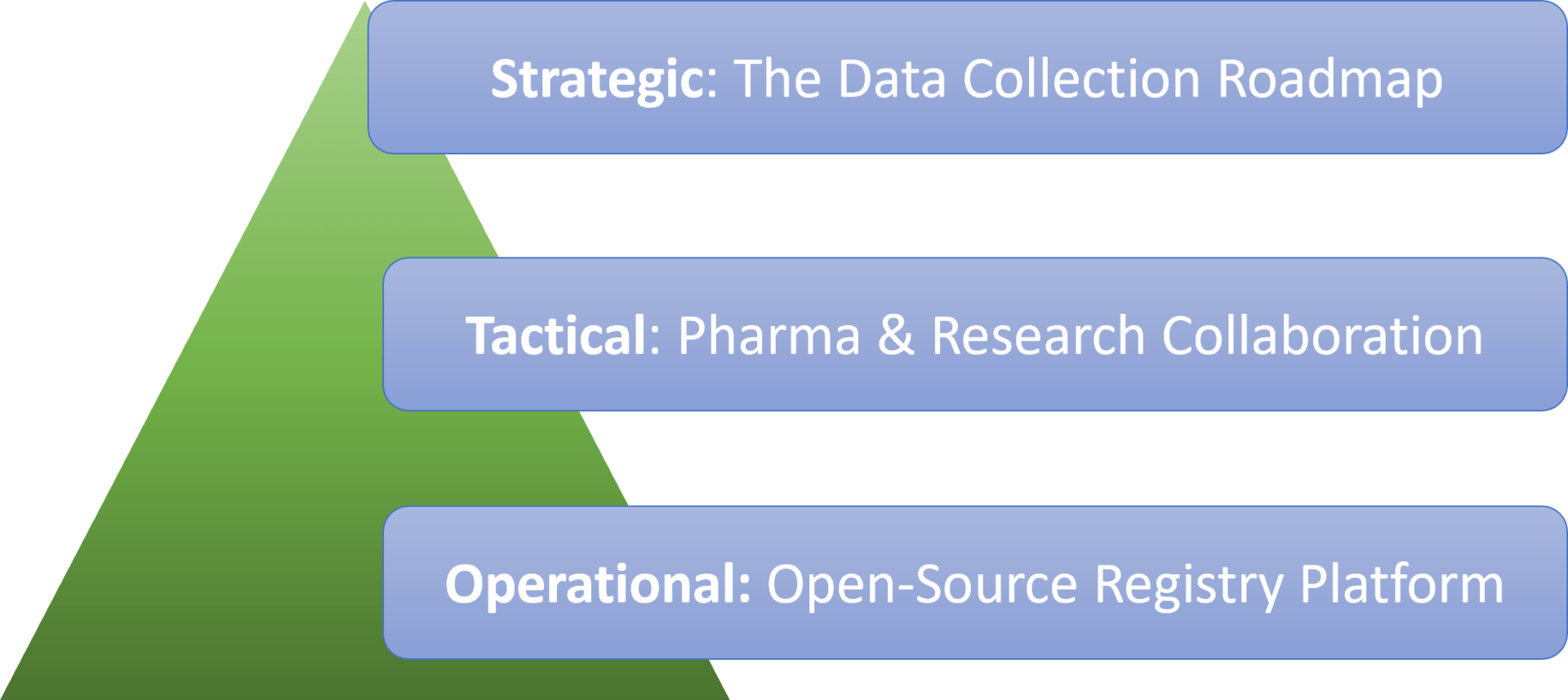A registry should be designed to operate for 20-30 years. It should never be a static standalone “black box” solution that can only understood by an IT professional. It will need to be easily upgraded by clinicians as it expands and becomes increasingly valuable.
A registry is only useful if it contains data on a large percentage of patients. We design “Smart Registries” that are useful for clinicians and patents and not just researchers. This ensures a high level of enrolment and participation.
The registry must allow sharing of common outcome data with international registries while meeting the unique needs of national researchers. Pulmonary Fibrosis has over sixty separate international registries; an obvious obstacle for clinical research. In contrast Cystic Fibrosis has a common European dataset allowing patient outcomes to be compared across countries. This has led to life saving treatments and care for CF patients.








